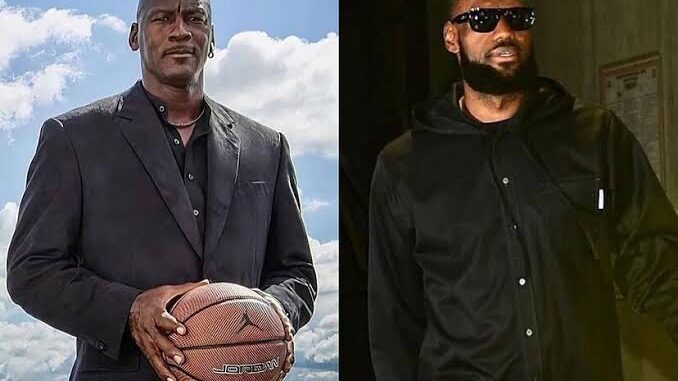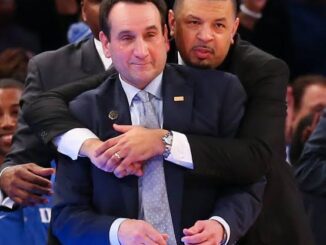
BREAKING: Unexpected Development – Basketball Legend Michael Jordan Sends Urgent Letter to Duke University Raising Serious Concerns About an Agreement Between Duke’s Head Coach Jon Scheyer and NBA Superstar LeBron James
In an unexpected turn of events, basketball icon Michael Jordan has sent an urgent letter to Duke University, expressing serious concerns regarding an agreement made between Duke’s head coach, Jon Scheyer, and NBA superstar LeBron James. The agreement, which had been under wraps until now, has stirred a significant amount of controversy, drawing attention from not only the basketball community but also from legal experts and university officials.
The nature of the agreement between Scheyer and James is still unclear, but it is believed to involve a collaboration that would have major implications for both Duke’s basketball program and LeBron James’ growing influence in college athletics. Sources close to the matter suggest that the deal might involve recruitment strategies, player development initiatives, or even endorsement opportunities tied to James’ personal brand. Given LeBron’s immense popularity and his involvement in various aspects of basketball, including youth development and sports media, any partnership with Duke would have had the potential to reshape the landscape of college basketball.
However, Michael Jordan’s involvement in this matter has raised questions and concerns. Jordan, often seen as the gold standard of basketball excellence and a figurehead in both the professional and collegiate spheres, has a long history of playing an influential role in the sport. His letter to Duke University highlights several key issues regarding the terms and enforceability of the agreement between Scheyer and James, which, according to Jordan, could have unintended consequences for the future of college basketball.
One of the most pressing issues mentioned in Jordan’s letter is the potential impact of such a deal on recruiting and player development at Duke. The deal’s specifics reportedly involve a high degree of external influence, which Jordan argues could undermine the integrity of the recruiting process at a major university like Duke. With the increasing commercialization of college athletics, Jordan is concerned that deals of this nature could lead to an overemphasis on personal branding and financial gain, rather than focusing on the development of student-athletes.
Additionally, Jordan raised concerns about the long-term implications for the college basketball landscape as a whole. The letter suggests that allowing high-profile figures like LeBron James to enter into such agreements could create an environment where the sport is more driven by individual financial interests than by the spirit of competition and academic integrity. Jordan has always been an advocate for the game’s purity and fairness, and he appears to feel that the terms of the deal between Scheyer and James could blur those lines.
The letter from Michael Jordan also calls for transparency from Duke University and its coaching staff, urging the institution to clarify the nature of its agreement with LeBron James and ensure that all involved parties are in full compliance with NCAA regulations. Duke, which has long been a respected powerhouse in college basketball, may find itself under intense scrutiny as the situation develops.
As of now, it is unclear how Duke University will respond to the letter, but the involvement of Michael Jordan has added a layer of complexity to the issue. While Scheyer and James have yet to comment publicly on the matter, the letter has already sparked a broader debate about the intersection of business, basketball, and college athletics.
The situation remains fluid, and as more details emerge, it is likely to remain a hot topic of discussion among fans, analysts, and stakeholders in college basketball. What is certain is that this unexpected development has thrown a new wrench into the already complex world of college sports, and the outcome could have lasting ramifications for both Duke University and the future of college basketball.



Be the first to comment